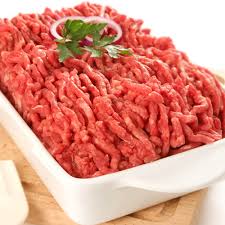记忆方法
1. minute => mince.
2. Etymologically, to mince something is to make it extremely 'small'.
3. It is ultimately from minutus "small".
4. => chop in little pieces.
2. Etymologically, to mince something is to make it extremely 'small'.
3. It is ultimately from minutus "small".
4. => chop in little pieces.
中文词源
mince 绞肉,装模作样
来自古法语mincier,使成碎片,来自拉丁语minutus,小的,词源同minute,minus.引申词义绞肉,后用于形容人的装模作样,矫揉造作。
英语词源
- mince
-
mince: [14] Etymologically, to mince something is to make it extremely ‘small’. The word comes via Old French mincier from Vulgar Latin *minūtiāre, a derivative of Latin minūtia ‘small thing’. This in turn was based on minūtus ‘small’, source of English minute.
=> minute - mince (v.)
- late 14c., "to chop in little pieces," from Old French mincier "make into small pieces," from Vulgar Latin *minutiare "make small," from Late Latin minutiæ "small bits," from Latin minutus "small" (see minute (adj.)). Of speech, "to clip affectedly in imitation of elegance," 1540s; of words or language, "to restrain in the interest of decorum," 1590s. Meaning "to walk with short or precise steps" is from 1560s. Related: Minced; mincing.
- mince (n.)
- "minced meat," 1850; see mincemeat.
权威例句
- 1. The doctors didn't mince their words, and predicted the worst.
- 医生直言相告,并做了最坏的预测。
- 2. Brown the mince in a frying pan.
- 在煎锅里把肉末煎至棕色。
- 3. Would you like me to mince the meat for you?
- 你要我替你把肉切碎 吗 ?
- 4. Don't mince matters , but speak plainly.
- 不要含糊其词, 有话就直说吧.
- 5. Mince the meat and the onion.
- 把肉和洋葱剁碎吧.
